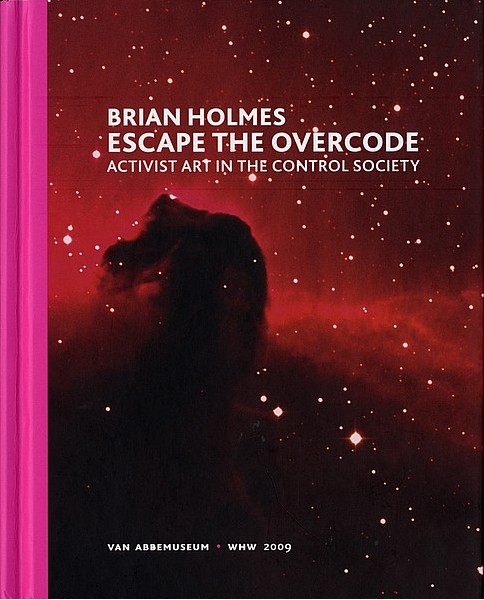Juha Suoranta, Tere Vadén: Wikiworld (2008/2010)
Filed under book | Tags: · capitalism, collaboration, economy, education, learning, political economy, politics, socialist media, web 2.0

Wikiworld explores a revolution in the world of education. The way we learn is changing: institutionalised learning is transforming into new forms of critical learning and open collaboration. This book offers a historical and political framework to think about the future of learning and educational media.
The authors provide an overview of the use of new technologies and learning practices, and assess how the changing nature of education can lead to a more socially just future. At the same time, they place their analysis of education within a wider social and economic framework of contemporary capitalism.
Publisher Pluto Press, 2010
ISBN 0745328911, 9780745328911
176 pages
PDF (2010 version)
PDF (2008 version, copyleft)
Brian Holmes: Escape the Overcode: Activist Art in the Control Society (2009)
Filed under book | Tags: · activism, art, capitalism, critique, cybernetics, geopoetics, geopolitics, mapping, media activism, network culture, politics, social movements, theory

“This publication contains a selection of texts and essays by the writer Brian Holmes that engage with the possibilities and problematics of geopolitics and geopoetics. Holmes is a crucial contemporary writer and thinker whose insight into current social and political developments and how they relate to artistic processes opens up a new field of “geocritique”.
The examples he cites extend across Latin America, Europe and Asia, where he looks at networks, artworks, films, institutions and protest movements for signs of how future progressive strategies might be shaped. The texts here are connected in part with the long-term collaborative research project Continental Drift.”
Publisher Van Abbemuseum, Eindhoven, and Zagreb: WHW, 2009
Research Series, 2
ISBN: 9789070149987
414 pages
HTML
PDF’d HTML (updated on 2015-4-28)
Christian Marazzi: The Violence of Financial Capitalism (2010)
Filed under book | Tags: · capitalism, cognitive capitalism, economy, finance, financial crisis, politics

“This first English-language edition of Christian Marazzi’s most recent book, The Violence of Financial Capitalism, makes a groundbreaking work on the global financial crisis available to a new audience of readers. Marazzi, a leading figure in the European postfordist movement, first takes a broad look at the nature of the crisis and then provides the theoretical tools necessary to comprehend capitalism today, offering an innovative analysis of financialization in the context of postfordist cognitive capitalism. He argues that the processes of financialization are not simply irregularities between the traditional categories of wages, rent, and profit, but rather a new type of accumulation adapted to the processes of social and cognitive production today. The financial crisis, he contends, is a fundamental component of contemporary accumulation and not a classic lack of economic growth.
Marazzi shows that individual debt and the management of financial markets are actually techniques for governing the transformations of immaterial labor, general intellect, and social cooperation. The financial crisis has radically undermined the very concept of unilateral and multilateral economico-political hegemony, and Marazzi discusses efforts toward a new geo-monetary order that have emerged around the globe in response. Offering a radically new understanding of the current stage of international economics as well as crucial post-Marxist guidance for confronting capitalism in its newest form, The Violence of Financial Capitalism is a valuable addition to the contemporary arsenal of postfordist thought. This expanded edition includes a new appendix for comprehending the esoteric neolanguage of financial capitalism—a glossary of ‘Words in Crisis,’ from ‘AAA’ to ‘toxic asset.'”
Translated by Kristina Lebedeva
Publisher Semiotext(e), 2010
Intervention series, 2
ISBN 1584350830, 9781584350835
112 pages
PDF (updated on 2017-6-26)
Comment (0)
